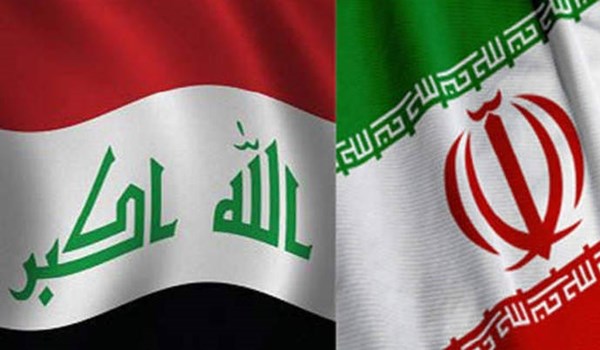
RNA - The Iraqi Parliamentary delegation attending the 139th IPU Assembly (formerly known as the Inter-Parliamentary Conference) made the remarks on Tuesday during a meeting with the parliamentary delegation from Iran.
The two delegations met on the sidelines of the event in Geneva discussing ways to boost parliamentary ties.
Headed by first deputy speaker Hassan Karim al-Kaabi, Iraqi lawmakers denounced US’ unilateral sanctions against the Iranian nation and highlighted the need to activate Iran-Iraq friendship groups in both parliaments.
For her part in the meeting, Seyedeh Fatemeh Hosseini, the head of Iranian delegation, called for expanding mutual cooperation between Iran and Iraq in al areas, including trade and the fight against terrorism.
Started on October 4, the 4-day-long IPU Assembly is themed “parliamentary leadership in promoting peace and development in the age of innovation and technological change.”
The IPU Assembly is the principal statutory body that expresses the views of the Inter-Parliamentary Union on political issues. It brings together parliamentarians to study international problems and make recommendations for action.
Iraq is the second country after China in terms of trade volume with Iran. While exports to China are almost exclusively petrochemical products, Baghdad purchases a large variety of Iranian goods, helping to maintain high employment rates.
Iraq announced last month that it had officially removed the US dollar in trade with Iran by declaring a legal limit for passengers to carry along euros and not dollars into the Islamic Republic.
"Passengers would be allowed to carry along €10,000 or an equal value of any other foreign currency other than the greenback into Iran," a statement by Iraq’s Customs Authority said.
The Customs Authority in its previous announcements had only cited US Dollar ceilings.
In a relevant development in early September, Iraq and Iran had abandoned the greenback in their mutual trade, giving way to the Euro and local currencies, as well as direct barter of goods.
"The US dollar has been removed from the list of currencies used by Iran and Iraq in their trade transactions and they are using Iranian Rial, euro and Iraqi dinar for financial transactions,” Head of Iran-Iraq Chamber of Commerce Yahya Al-Eshaq said at the time.
Apart from switching from the US dollar to alternative currencies, Iranian and Iraqi merchants have been engaging in barter operations.
Iran and Iraq enjoy very close ties in the post-Saddam era and early in September, Advisor to the Iranian Parliament Speaker Hossein Amir Abdollahian underlined that Tehran and Baghdad enjoy strategic relations, blaming foreign hands for the recent unrest and attack on Iran's consulate in Basra.
“There are clear traces of the complicity of foreign agents of the region’s warmongers in the incident of arson attack on the consulate of the Islamic Republic of Iran in Basra,” Amir Abdollahian wrote on his twitter page.
“British Shiite and Saudi Wahhabism won’t be allowed to drag Iraq into chaos. Tehran-Baghdad relations are strategic,” he added.
On September 21, Amir Abdollahian blasted the US for trying to hamper the relations between Tehran and Baghdad, and said the ties between Iran and Iraq is strategic.
Iraqi media outlets released several audio files showing the Saudi intelligence agencies' footprints in the recent unrests in Basra city in Southern Iraq.
The Arabic-language al-Ahd news channel released the audio files on Saturday, revealing that Saudi Arabia has been running spying attempts to earn intelligence superiority in Iraq.
One of the files indicated that the Saudi intelligence agency has recruited several people in Iraq to be used in sensitive conditions, including the recent unrests in Basra, to monitor the police and security forces' moves in the region.
They showed that the Iraqi spies provided a Saudi officer, named Abu Khalid al-Saudi, with intelligence about the trafficking and deployment of security forces and army and police commanders in return for money and gifts.
The audio files also disclosed that the Saudi intelligence agency has created an extensive network of spies in Western, Central and Northern Iraq in addition to the Southern parts of the country.
According to Fars News Agancy, Iraqis in Southern areas of the country are demonstrating against lack of public services in poor areas and the angry protestors have set many government buildings and diplomatic missions in Basra on fire.
Protesters stormed the Iranian consulate in Southern Iraq's city of Basra, setting it on fire as part of demonstrations against lack of services and jobs in which several government buildings have been ransacked and torched.
Demonstrators on Friday broke into the consulate building in Basra which was empty when the crowd burst in.
Iraqi security officials announced a citywide curfew in Basra, a city of two million people, warning that "anyone present in the street" would be arrested.
847/940